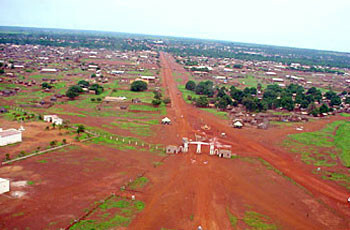The acting chairperson of the Islamic Council in Western Bahr el Ghazal State has appealed to merchants to reduce and charge fair prices for food commodities during the holy month of Ramadan to allow citizens to afford a daily meal while fasting.
Harun Abakar Harun who is also the chairperson of the economic cluster at the state legislative assembly, told Radio Tamazuj Tuesday that the current high food prices will jeopardize fasting.
“As members of the Islamic Council, we are urging all Muslims and the entire public in the name of Allah to be mindful of the poor people when pricing food commodities in the market,” he said. “The wealth that God has given you is a responsibility and that is why we are calling on you, during this time of fasting, to be fair so that citizens can get a meal.”
“During this period of fasting, God needs people he has given wealth to come together and share with the poor,” Bakar added.
Since last month, commodity prices have been skyrocketing in Wau town, with traders blaming inflation, the depreciation of the local currency against the U.S. Dollar, and the ongoing war in Sudan.
For his part, Lino Uguak, a retailer in Wau, said traders who import goods from neighboring countries have increased prices due to insecurity, the depreciation of the pound, and over-taxation.
“It is true that things are expensive. When we go to buy things from the leading traders, they say items are expensive because of inflation, the dollar is expensive, and the roads are not good. This is why commodity prices have shot up,” he explained. “In the last two days, a kilo of sugar went up to SSP 3,000 and maize flour has now reached 2,500. Also, there is multiple taxation along the way.”
Meanwhile, Ayub Adam, another trader, said they are considerate of the plight of consumers despite rising commodity prices.
“Goods are very expensive because the dollar has gained a lot against the pound but we are still helping the citizens by selling at the lowest possible prices,” he stated. “Transport has also become costly and I am feeling the burden as a trader because it is not our making.”
“Bread which cost SSP 100 is now 200 and we have children too and the price hikes are affecting our families,” Adam added.
He urged the Government of South Sudan to intervene economically so that commodity prices are reduced and stabilized.




